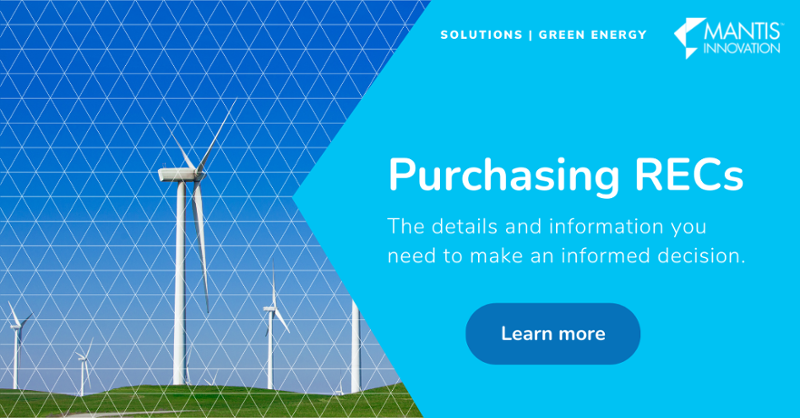Energy Procurement | May 21, 2021
A Guide: How to Choose the Right Energy Broker for Your Business
Energy is a significant expense for most businesses. Although it may seem like there is little to no control over monthly energy bills, aside from using less energy, there are options.
Hiring an energy broker can be very beneficial for a business. A partnership with a knowledgeable and experienced broker is often crucial for success because of their ability to help companies manage energy costs and improve energy efficiency to help lower monthly energy bills.
One of the most important factors to consider when choosing an energy supplier is the current and future rate. However, the rate should not be the most influential factor to base a decision off on.
Here are some of the components that should put into consideration while selecting your next energy broker.
1. Overall Reputability of a Broker
The reputation of a broker is the most significant factor in basing a decision, as having trust and confidence in your broker is crucial to the success of the relationship. Making sure they are credible and dependable should be the first step in your process of selecting a broker.
Financially viable energy brokers offer security and assurance that their service will be available when energy markets rise and fall. Consider brokers who are respected, have established themselves in multiple regions, and have vast experience in the wholesale markets, buying, and selling energy.
Choosing an experienced broker allows a business to customize their energy strategies to meet their long-term financial energy goals. A well-respected broker is likely to have relationships with several trusted suppliers and vendors to help save their clients’ money.
2. Transparent Contract Terms & Energy Rate Components
There are many differences between contracts that should be considered carefully while choosing an energy broker. For example, depending on the energy strategy selected, the term length and price of energy could vary. Make sure to examine the terms and conditions of an energy contract and comprehend cancelation fees or obstacles that may arise by switching suppliers.
It is essential to be aware of the contract term length and the various components that comprise an energy rate. Understanding in advance whether an energy contract will automatically renew, require the selection of a new energy rate, or if your contract will expire with an imposed monthly variable price is also very helpful.
Additionally, choose a broker that thoroughly explains the impacts supply and demand will have on energy bills and predictable market influence that may occur in the future. An ideal broker helps clients understand and prepare for upcoming events or potential business operations changes by altering various contract components.
By understanding the components associated with an energy rate, a business can better determine which rate components to pass through instead of fixing the cost. An ideal broker works closely with their clients to compare market-based versus fixed-rate component costs and the combination of both cost structures to determine the best strategy, financially, that will meet the clients’ goals.
3. Ability to Offer a Wide Range of Solutions
As our society grows more socially conscious, there has been a substantial push for businesses to take responsibility for their environmental impact and make necessary adjustments to reduce their carbon footprint.
To achieve sustainability goals, choosing the right energy broker is crucial for success. An energy broker with a great deal of industry experience has the vendor relationships, resources, and knowledge to easily incorporate renewables into your energy portfolio.
An experienced, knowledgeable energy broker will help implement a clean energy strategy for your organization and offer a wide range of solutions to help increase efficiency. Because of the complexities of larger businesses, providing multiple options is especially important because they oftentimes require various solutions to meet their sustainability goals.
4. Ongoing Support and Customer Service
Make sure to choose a broker that offers support and guidance throughout the entire contract period. A reputable broker will keep up an ongoing conversation and continuously provide their clients with information about pricing and energy markets. They will also recommend programs and incentive opportunities that are relevant.
When talking to a potential broker, be sure to ask plenty of questions. A few of the most important questions to ask include:
- Who will be managing your account after an energy contract is signed?
- Will customer support be available?
- What is the best way to reach customer support – by phone, online chat, or face-to-face?
- Are there any fees associated with customer support?
Large commercial and industrial businesses with a complex energy portfolio should select a broker that can provide a dedicated account representative to assist their clients. That account representative should be an energy strategist who works as a resource to help with the overall success of your energy objectives and not just a salesperson. They should bring a great deal of experience and industry knowledge to the relationship and a strong dedication to helping their clients reach their energy targets.
When the time comes for a business to start researching an energy broker to partner with, looking for these key attributes is essential.
The time and effort that companies put into selecting the right broker can be worth the investment. A successful relationship with a knowledgeable broker that has a great deal of experience, and prioritizes their clients can be highly beneficial and valuable to businesses.
Related Posts
Discover more content and insights from Mantis Innovation

Navigating Energy Procurement: Strategies to Manage Risk
When procuring energy for your commercial business, it can be difficult to weigh the risks associated with buying strategies. How do you know your procurement strategy is the right one? How

PJM Capacity Auction Results: A Surge in Prices and Its Implications
PJM recently released the capacity auction results at the end of July for the period of June 2025 through May 2026, and the outcomes have been much higher than most anticipated. This surge in prices

The Fall of The Chevron Deference – What Does it All Mean?
The Chevron Deference is a legal principle derived from a 1984 Supreme Court case, Chevron U.S.A., Inc. v. Natural Resources Defense Council, Inc. It states that when a law is unclear or ambiguous,

Understanding Peak Demand Notifications and How They Can Benefit Your Business
In the world of energy management, peak demand periods represent a critical time when the electricity grid is under the most stress, typically during extreme weather conditions like heat waves or
